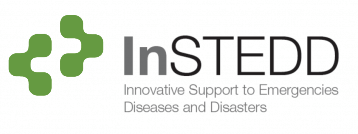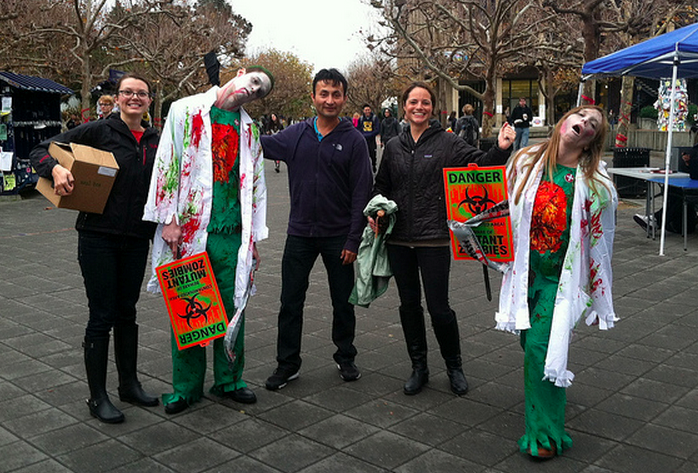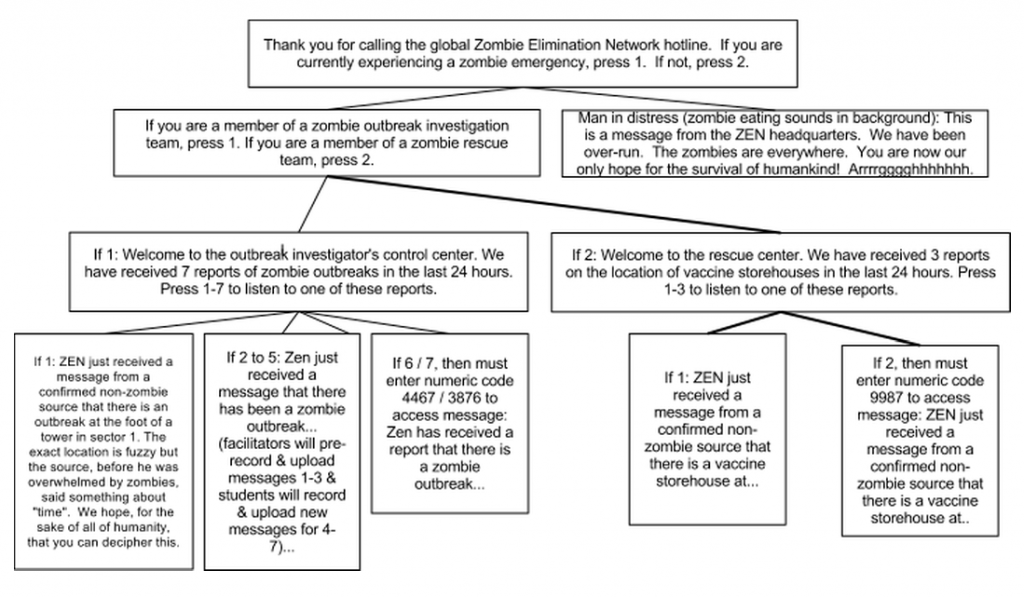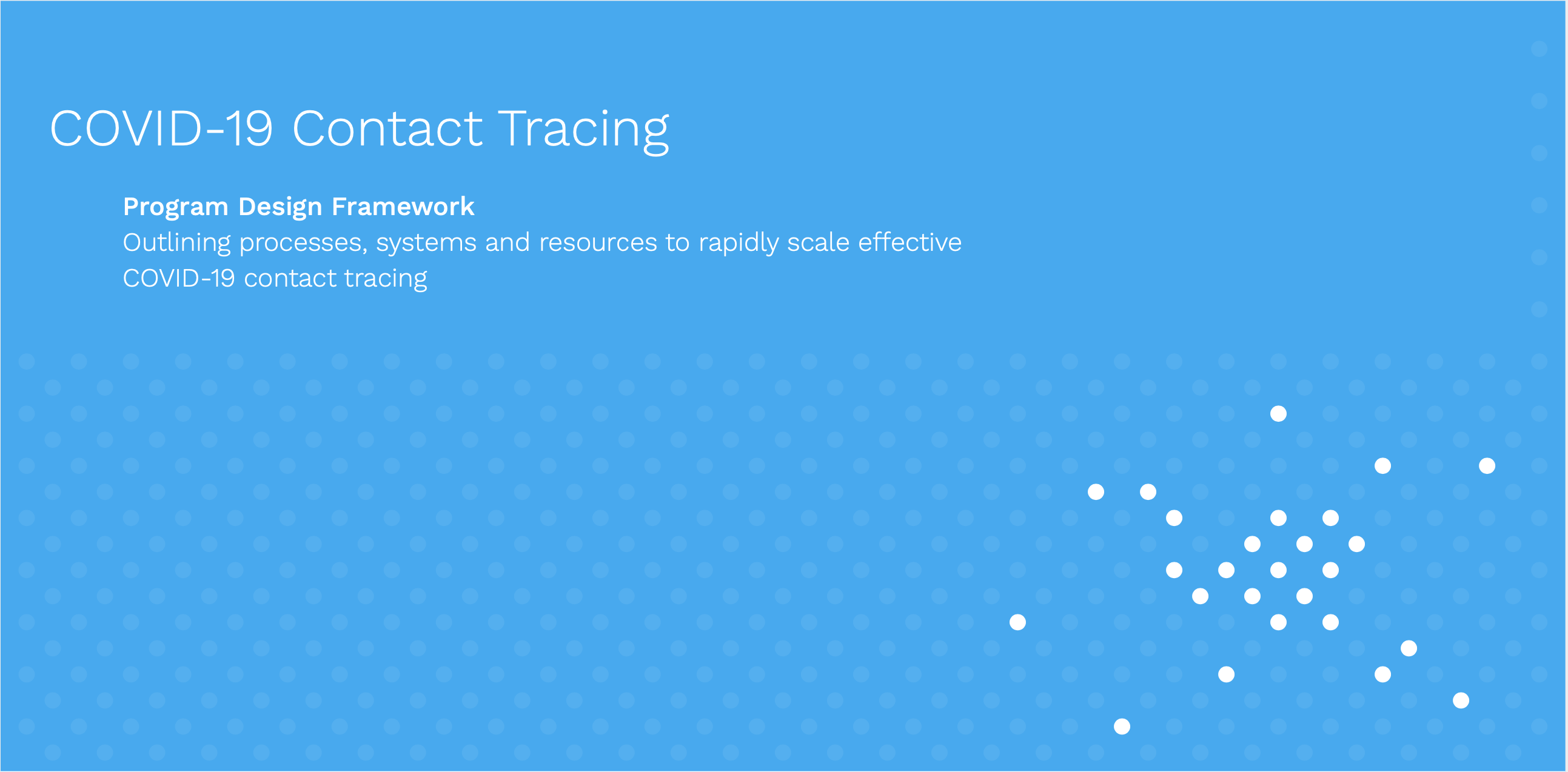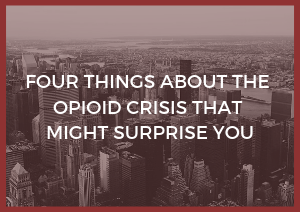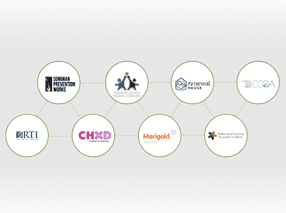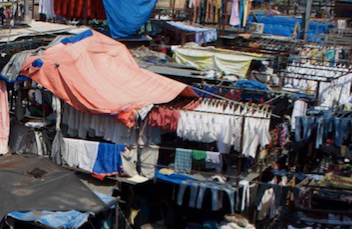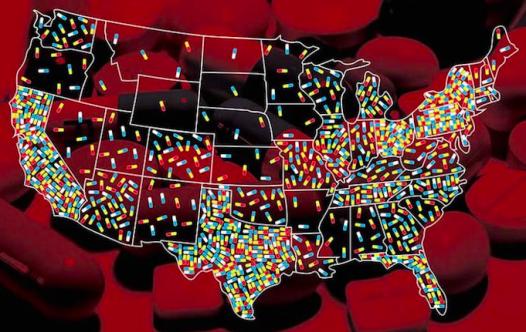InSTEDD Tools Save the World from the Zombie Apocalypse!
UC Berkeley Game Teaches the Value of Real-Time Mobile Communications Tools
Working in the world of public health exposes us to a number of potentially life threatening scenarios. InSTEDD’s tools are designed to work in high stakes environments where people need to quickly share information, coordinate resources, and align their efforts towards the common goal of ensuring the public’s health and safety. In an effort to create a fun and interactive environment for people to learn how our tools work and how significantly they can improve communications, we teamed up with UC Berkeley to create a public health simulation – using Zombies!
Fortunately for us, Caricia Catalani, InSTEDD’s Senior Research Associate, is also faculty at the University of California, Berkeley, School of Public Health. The focus of her work is on the development and evaluation of information technology and Web 2.0 tools for global health. She teaches about participatory new media and Web 2.0 tools for health research, intervention, and advocacy with underserved communities. With the goal of helping future public health innovators understand what it is like to be in an active outbreak scenario, we decided that we would do a simulation where InSTEDD’s mHealth tools would be valuable, but also create a fun and engaging event for the students.
Our goals were threefold:
- Support interaction with our tools so that others can learn what/how/value
- Exposure and advocacy so others will help spread the word about our work/tools
- Learn from this experience so we can improve the process for future small scale events/pilots
Here is a short description of our original plan and what we prepared for the students:
Setting the Scene: Zombie Apocalypse
The Zombie Apocalypse is sweeping the globe. There are rumors of zombie sightings across UC Berkeley campus. Students of PH290 are the only hope for saving the campus and yes, the planet, from total zombie take-over. You and your classmates will form emergency response teams to investigate zombie outbreaks, deploy the zombie vaccine, and manage communications with your team and the global Zombie Eradication Network (ZEN). Tme is running out and all teams only have 1.5 hours to beat back the zombie threat. At exactly 3:30pm, the Zombie Apocalypse will be complete and humankind will be defeated, if your teams fail. If you win, however, the glory of a new dawn of humanity, built on collaboration and compassion, will be thanks to what you were able to achieve today. Also, there will be prizes that are beyond amazing.
Breaking into Teams: Investigators, Rescuers, & Communications
Zombie Outbreak Investigators: This team of zombie epidemiologists is deployed to assess the seriousness of the situation and determine the exact location of zombie outbreaks. Outbreak investigators are charged with an immensely important task and all other teams rely on you. You will get clues about the location of zombie outbreaks by calling the ZEN hotline (Verboice). Answer clues to find outbreak locations around campus and discover upon arrival whether or not the location is a real outbreak zone or a false alarm. Outbreak investigators will communicate the location of real outbreak zones to all of the other teams (GeoChat).
Zombie Rescue Team: This team of physicians, nurses, and frontline medical workers is deployed to zombie outbreak areas to distribute the lifesaving zombie vaccine. You will get clues about the location of zombie vaccine storehouses by calling the ZEN hotline (Verboice). Answer clues to find these locations around campus and discover upon arrival whether or not vaccines are still in stock. The rescue team will will communicate the location of vaccine storehouses to all of the other teams (GeoChat). Once you find them, the fate of humanity relies on your ability to bring vaccinations to zombie outbreak locations, communicated by the outbreak investigation team.
ZEN Command Center Communications Team: This team of computer engineers, gamers, and communications nerds is tasked with building and managing the zombie outbreak communications. Without you, field teams of investigators and rescuers will never identify and address the threat of zombie take-over before the 3:30pm end-of-humanity. You will receive messages from field teams and other ZEN experts from around the nation that you will need to communicate to the investigator and rescue teams. Nico di Tada, the global ZEN communications captain, escaped the total human annihilation in Seattle to join the last front in the fight against zombies, here in Berkeley. He is here to lead the effort but he needs your help.
Danger-zones
There are 5 danger-zones on campus, where zombie outbreaks are most serious, however teams will receive two false-alarm locations. You will know that you have found a danger-zone if you find Zombie police tape and Zombie signs. Look behind the zombie sign for a special numeric code. You will need to enter this code into Verboice to access the clues for locations 4 and 5. Make sure that danger-zones location information is communicated through GeoChat, so that others in ZEN teams can respond to this information.
Vaccination Storehouses
There are 2 vaccination storehouses on campus, where life saving anti-zombie vaccines (in giant syringes) can be collected and, then, brought to where they are needed most. You will know that you have found a danger-zone if you find Zombie police tape and a box of vaccine syringes. Look inside the box for a special numeric code. You will need to enter this code into Verboice to access the clue for location 2. Make sure that vaccination storehouse location information is shared through GeoChat, so that others in the ZEN teams can respond.
Using InSTEDD’s interactive voice response tool, Verboice, we were able to set up a call flow that went a little something like this:
Once the game was over, everyone returned to the classroom to discuss the student’s impressions on what worked, what we needed to improve on and how these tools could be used in an actual disease outbreak scenario. As in any emergency situation, many things did not go quite according to plan. For example, the students had only a surface level understanding of the tools and didn’t feel confident enough to use the tools at their full capacity.
As a final wrap up to the event, we asked the students a series of questions and held an active class discussion revolving aroudn the following questions:
- What were the biggest technical challenges, counter-intuitive features, or collaboration difficulties?
- What more would you like to know about the mHealth tools to use them more effectively?
- What additional features or options would be useful in these tools?
Not only did we have a lot of fun experimenting with this game, we also learned a lot of valuable lessons for the future. Check out our event slideshow below and stay tuned on our blog for the next version of the game coming in 2013.
